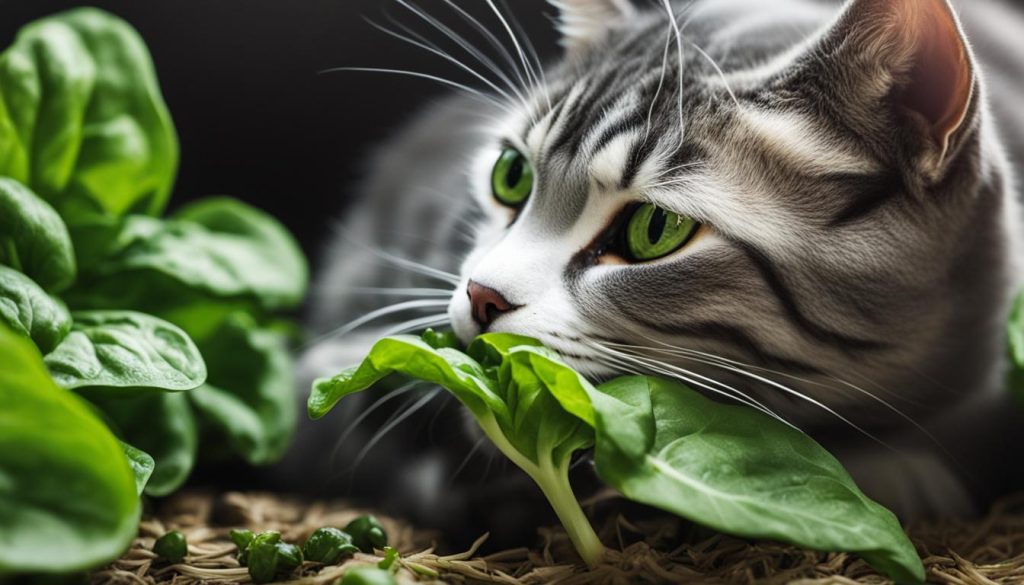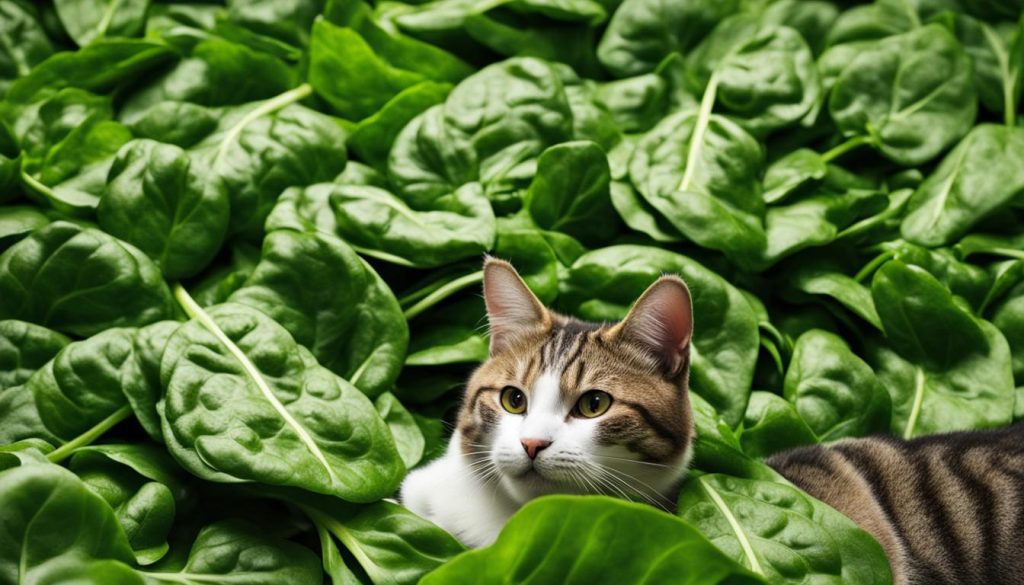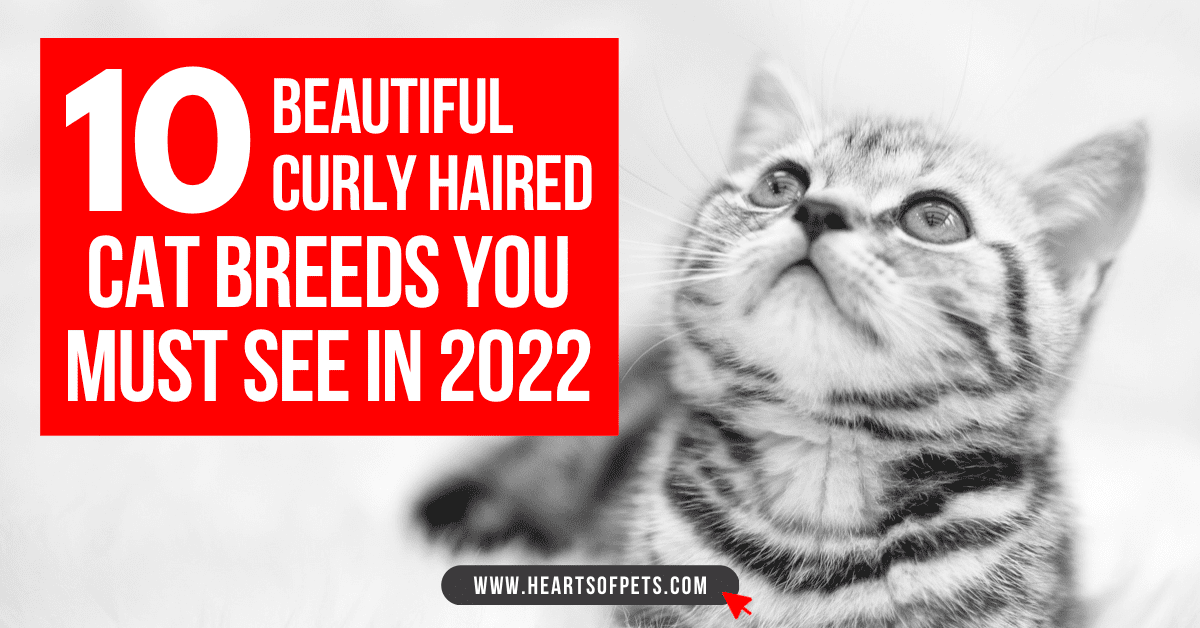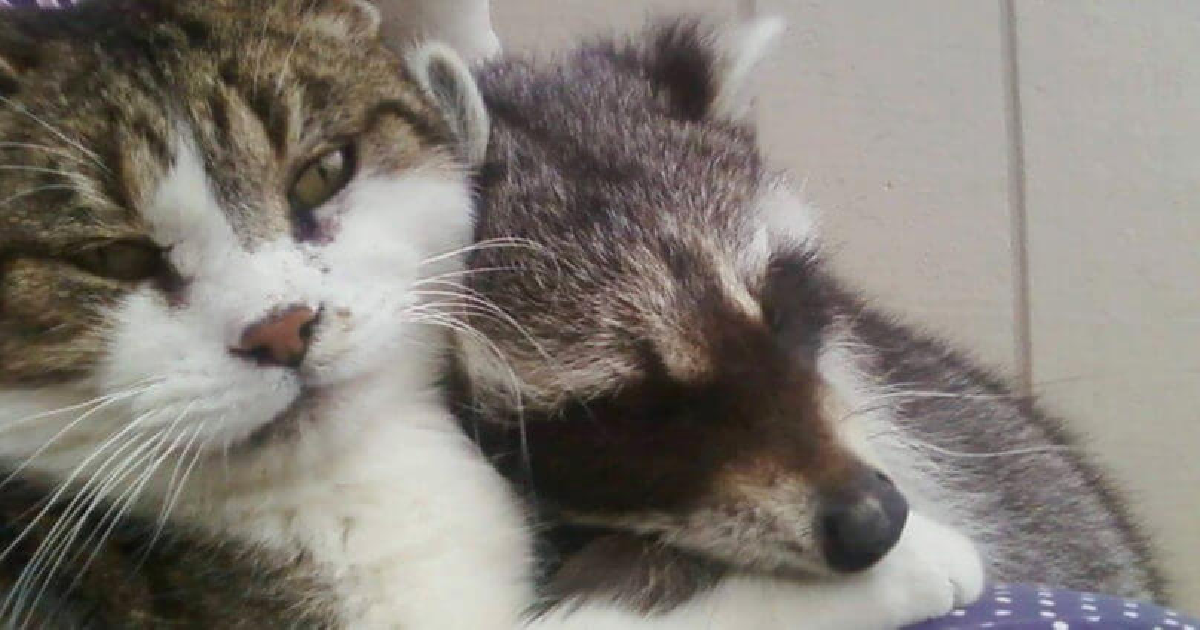As a cat owner, you may have wondered if it is safe to feed your feline companion spinach. After all, spinach is known for its numerous health benefits in humans. But what about cats? Can cats eat spinach? Is spinach safe for cats?
Well, the good news is that cats can indeed eat spinach. Spinach is non-toxic to cats and can be included as part of their diet. However, it’s important to note that spinach is not necessary for a cat’s nutrition as long as they are consuming a high-quality cat food that provides all the essential nutrients they need.
Spinach is packed with vitamins and minerals such as vitamin A, K, B6, B2, and E, as well as magnesium, folate, calcium, and potassium. These nutrients can be beneficial for a cat’s overall health. However, it’s crucial to consider any existing health conditions your cat may have, particularly kidney or urinary problems, as spinach contains calcium oxalate, which may not be suitable for cats with these conditions.
If you are considering adding spinach to your cat’s diet, it is always recommended to consult with your veterinarian. They can provide personalized guidance based on your cat’s specific needs and health requirements.
Remember, moderation is key when feeding spinach to cats. Excessive consumption, especially in cats with kidney or urinary problems, may lead to the formation of harmful crystals in their urinary tract. Additionally, cats have a limited ability to digest plant matter, so spinach should be offered as an occasional treat rather than a staple food.
To feed spinach to your cat, it’s best to steam or gently sauté the vegetable without any added salt, spices, or seasoning. Raw spinach should be avoided as it contains high levels of oxalates, which may increase the risk of urinary issues. Start by offering a small amount of cooked, plain spinach to see if your cat enjoys it.
Can Cats Eat Spinach? Generally, yes they can.
- Cats can eat spinach, but it is not necessary for their diet.
- Spinach can provide some nutritional benefits, including vitamins and minerals.
- Consult with your veterinarian before introducing spinach to your cat’s diet, especially if they have kidney or urinary problems.
- Feed spinach to your cat in moderation as an occasional treat, ensuring it does not make up more than 10% of their daily calorie intake.
- Consider other safe foods for cats, such as cooked eggs, salmon, tuna, certain cheeses, turkey, and bananas, but always remember to offer them in moderation and as treats, not as a substitute for a complete and balanced cat food diet.
The Benefits of Spinach for Cats
Spinach can offer several benefits for your cat’s overall health and well-being. This leafy green vegetable is packed with essential nutrients that can contribute to your cat’s nutrition.
Vitamins: Spinach is rich in vitamins A, B6, and K, which play vital roles in various bodily functions. Vitamin A supports eye health, B6 is important for metabolism and brain development, and vitamin K helps in blood clotting.
Fiber: Spinach contains fiber, which aids in digestion and helps regulate bowel movements. Adequate fiber intake can support your cat’s digestive system and prevent constipation.
Minerals: Spinach is also a good source of minerals such as magnesium, manganese, potassium, and iron. These minerals are essential for maintaining healthy muscles, bones, and blood cells in your cat’s body.
Antioxidants: Spinach is packed with antioxidants, including folic acid, which helps in the production of new cells and supports overall growth and development in cats.
While spinach offers these nutritional benefits, it’s important to note that cats don’t require spinach in their diet as long as they are consuming a well-balanced cat food that meets their nutritional needs. High-quality cat food already provides all the necessary nutrients for their health and wellness.

Risks of Feeding Spinach to Cats
While it is generally safe for cats to consume spinach, it is important to be aware of the risks involved. Feeding spinach to cats should be done in moderation to avoid potential health issues.
Excessive consumption of spinach, especially in cats with kidney or urinary problems, can be problematic. Spinach contains a compound called calcium oxalate, which may lead to the formation of harmful crystals in the urinary tract.
Cats also have a limited ability to digest plant matter, including spinach. While they may be able to digest small amounts, offering spinach as a treat rather than a regular part of their diet is advisable.
If you are considering adding spinach to your cat’s diet, it is always best to consult with a veterinarian first. They can provide personalized advice based on your cat’s specific health needs and dietary requirements.

How to Feed Spinach to Cats
When it comes to feeding spinach to cats, it’s important to take a few precautions to ensure their health and well-being. I recommend steaming or gently sautéing the spinach without adding any salt, spices, or seasoning. This preserves the nutrients while making it easier for your cat to digest.
It’s crucial to avoid giving cats raw spinach, as it contains high amounts of oxalates which can increase the risk of urinary issues. By cooking the spinach, you can help minimize these risks.
Start by offering a small amount of cooked, plain spinach to see if your cat enjoys it. Please remember that not all cats are inclined to eat veggies or fruits, and that’s perfectly fine. Every cat has its own preferences.
Treat spinach as an occasional snack rather than a staple in your cat’s diet. Ensure that it does not make up more than 10% of their daily calorie intake. Remember, a balanced cat food provides all the necessary nutrients, and spinach is not a requirement in their diet.
Observing your cat’s reaction to spinach and consulting with a veterinarian can help determine if it’s a suitable addition to their diet. Your vet can offer personalized guidance based on your cat’s specific needs and health conditions.
Other Safe Foods for Cats
In addition to spinach, there are other safe foods that cats can enjoy in moderation. Cats can eat a variety of foods from different food groups, as long as they are safe and suitable for feline consumption.
One question that often comes up is, can cats eat eggs? The answer is yes! Cats can eat cooked eggs. Eggs are a good source of protein and can be a tasty treat for your furry friend.
Another common query is, can cats eat salmon? Yes, they can, but it’s important to ensure that the salmon is thoroughly cooked and does not contain any seasonings or additives that may be harmful to cats. Cooked salmon can provide omega-3 fatty acids, which are beneficial for their overall health.
When it comes to canned fish, such as tuna, it is safe for cats to eat tuna packed in water. However, it’s important to avoid tuna packed in oil or any flavored varieties that may contain additional ingredients that are not suitable for cats.
As for cheese, certain types can be given to cats in small amounts. Cats are lactose intolerant, so it’s best to choose low-lactose or lactose-free options. Some safe choices include cheddar or Swiss cheese.
Turkey is another food that cats can eat, but it should be cooked without any seasoning or additives, as these may be harmful to their health. Cooked turkey can provide protein and can be a safe occasional treat for your feline friend.
Lastly, can cats eat bananas? Yes, they can! Bananas are safe for cats to eat in small slices. They contain essential nutrients such as potassium and vitamins, but should be offered in moderation as an occasional treat.
Remember, while these foods can be given to cats as treats, they should not replace a balanced cat food diet. Always consult with a veterinarian before introducing any new foods to your cat’s diet to ensure they are safe and suitable for your furry friend.
Conclusion
It is safe for cats to eat spinach, but it should be given in moderation. While spinach offers nutritional benefits such as vitamins and minerals, it should not be a substitute for a balanced cat food diet. It’s important to remember that each cat is unique, and factors like existing health conditions or sensitivities should be considered before introducing spinach or any new food into their diet.
If you’re unsure about whether to feed spinach to your cat, it’s always best to consult with a veterinarian who can provide personalized guidance based on your cat’s specific needs. They can advise you on the appropriate quantity and frequency of spinach or any other treats you wish to offer your feline companion. Your vet’s expertise will help ensure your cat maintains a healthy and balanced diet.
Remember, while spinach can be a healthy addition to your cat’s diet in small amounts, the primary source of nutrition for cats should come from high-quality cat food specially formulated to meet their dietary requirements. By providing your cat with a nutritious and well-balanced diet, you can help support their overall health and well-being.
FAQ
Can cats eat spinach?
Yes, cats can eat spinach as it is non-toxic to them. However, it is not necessary in their diet as high-quality cat food already provides all the nutrients they need.
What are the benefits of spinach for cats?
Spinach contains vitamins and minerals like vitamin A, K, B6, B2, and E, as well as magnesium, folate, calcium, and potassium, which can be beneficial for a cat’s overall health.
What are the risks of feeding spinach to cats?
While spinach is generally safe for cats, it may not be suitable for cats with kidney or urinary problems due to the presence of calcium oxalate. It’s best to consult with a vet before feeding spinach to your cat.
How should I feed spinach to my cat?
When feeding spinach to cats, it’s best to steam or gently sauté the vegetable without any added salt, spices, or seasoning. Avoid giving raw spinach to cats and offer it as an occasional snack in small amounts.
What other safe foods can cats eat?
Cats can also enjoy cooked eggs, salmon (thoroughly cooked), tuna (packed in water), certain cheeses (in small amounts), turkey (cooked without seasoning), and bananas (in small slices) as occasional treats.






